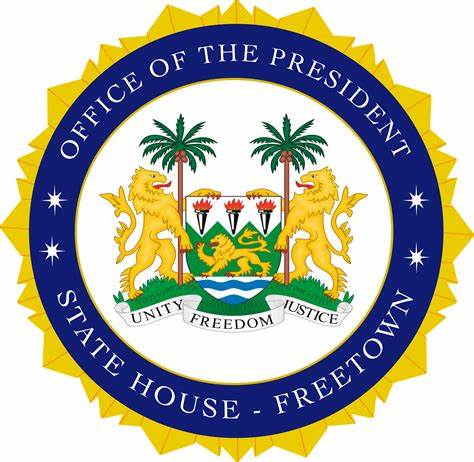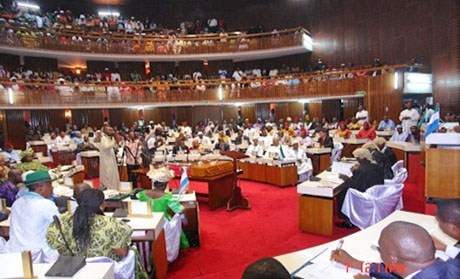President Koroma stuns London Leadership Summit with impressive presentation
Sierra Leone’s President today stunned a jam-packed Westminster Hall with an astonishing presentation on private investment and economic growth and development in Sierra Leone.
Dr. Ernest Bai Koroma was delivering his keynote address at the high-profiled Private Equity In Africa 2010 – a Leadership Summit For Private Equity Investors which saw representatives from 27 African countries as well as India, China, USA, UAE and Sweden with vast economic interest.
The 30 minutes address presented Sierra Leone in positive light especially strides made by the current government in encouraging private investment into the country.
The President spoke about economic growth in Africa indicating that African governments, like his, have tried to contain inflation, reduce debt, balance budgets and ensure accountability and transparency in a politically free and open market.
“This has resulted in average annual real GDP growth rate of almost 4.2% from 2000 to 2008, in line with the Middle East, and only behind Asia, whose growth continues to be led by Chinese economic growth,” the President noted.
He made specific reference to Sierra Leone where his government has achieved annual GDP growth far above the African average during the same period.
President Koroma said from the very beginning of his Presidency, in September 2007, his government has been committed to promoting trade and investment and the participation of the private sector in our country’s economic development.
The President addressed all the strategic infrastructural developments his government had successfully embarked upon over the last three years – and at the end of the presentation, the entire hall responded with loud applause.
Earlier the President and CEO of EMPEA introduced the President saying he is one of Sierra Leone’s most respected public figure who has changed the fortunes of one of his country’s leading insurance companies before jumping into the political arena.
A British MP and Under Secretary for International Development Stephen O’Brien who said he was just coming from Sierra Leone said he was very impressed with the work done so far by the current government.
Publisher of This Is Africa – Financial Times Simon Blackmore, who co-chaired the programme, thanked the Sierra Leonean leader for gracing the all-important occasion.
Below is the President’s full speech…
Co-Chairs of this August event Hon. Stephen O’Brien Distinguished Member of the Investment and Business Community Ladies and Gentlemen,Let me first of all thank the organizers, the Emerging Markets Private Equity Association and “This is Africa Magazine” (published by the Financial Times Group) for giving me this great opportunity to address this 2nd Annual Private Equity in Africa Forum.
Let me also take the opportunity to thank the Honourable Stephen O’Brien for the very kind introduction. Indeed it is a great honour to be introduced by Stephen, for the simple reason that even as DfID is a key development partner to my country, we both share the conviction that Sierra Leone’s economic growth should be and, indeed, will be driven by the private sector rather than solely through public sector activities and development assistance. Therefore, our joint presence here today serves to underline our combined commitment to the realization of that goal.
Over the past 10 years, we have all witnessed the rise of the BRIC countries, and the rapid growth of the Asian Tigers. Significant pools of investment capital served as the catalyst for the economic success now being realized by these countries and regions. But now, more than ever, investors are beginning to appreciate that the unrealized investment potential of Africa is perhaps more significant than anywhere else in the world.
Over the next 10-20 years, experts believe Africa has USD 1.5 to 2.0 trillion dollars of annual production revenue. Clearly, a significant portion of this potential is resource-based; with Africa home to 10% of the world’s reserves of oil, 40% of gold, 80-90% of the chromium and platinum group metals, as well as some of the largest deposits of uranium, iron ore and copper. But the investment potential of Africa goes far beyond its resource endowment.
The agricultural sector also represents an incredibly significant investment and development opportunity. Africa is home to approximately 600 million hectares of arable land suitable for cultivation. This represents almost 60% of the world’s total available cropland, which could be developed for both food security and fuel supplies. Further to this, only 15% of this land is developed, compared to 60% in Asia. Additionally, Africa has an abundant supply of water, with a per capita water resource of 4,600 square meters, significantly higher than Asia ’s 3,000 square meters.
Beyond minerals and agriculture, investment in telecommunications, banking and consumer products and retail is already proving fruitful. With employment rates improving and incomes rising, a larger portion of Africans now have a higher level of disposable income than ever before. Investors and companies willing to enter Africa now, have a great chance to establish new markets, build new brands, and establish a significant footprint and network capable of delivering high rates of return in the future.
But Africa’s potential to-date and its future growth can only be successful if political and economic stability continues and improves. African governments, like mine, have tried to contain inflation, reduce debt, balance budgets and ensure accountability and transparency in a politically free and open market. This has resulted in average annual real GDP growth rate of almost 4.2% from 2000 to 2008, in line with the Middle East, and only behind Asia, whose growth continues to be led by Chinese economic growth. In Sierra Leone, specifically, we’ve achieved annual GDP growth far above the African average during the same period.
Related to this, FDI inflows into (Sub-Saharan) Africa have significantly increased from $7 billion in 2000 to $32 billion in 2009, representing annual growth rate of approximately 17%.
Despite these positive trends and the valiant efforts of many African governments, misperceptions continue, raising the perceived risk profile of African investments and deterring important pools of investment capital which could go a long way to helping Africa realize its potential.
Very recently, Sierra Leone had the last UN sanction against it removed by the Security Council. The sanction was primarily an embargo on arms and military equipment into Sierra Leone with limited relationship to economic productivity, but, nonetheless, one more cause of misperception as to what is really going on in Sierra Leone. This was preceded by the removal of Sierra Leone from the list of Fragile States in July 2010. These events are clear signals to the world that Sierra Leone is safe and stable and therefore fulfills the primary criteria for investment activity. Beyond this however, I would like to share with you some of the key initiatives that my Government is focused on, to further reduce both perceived and actual risk, in order to make Sierra Leone a more attractive and lucrative investment destination.
From the very beginning of my Presidency, in September 2007, my government has been committed to promoting trade and investment and the participation of the private sector in our country’s economic development. To this end we have focused on three main areas: 1) Becoming a leading policy reformer in ECOWAS, 2) Development of vital infrastructure, and 3) Effective promotion of our investment opportunities.
Our success as a policy reformer can be seen in our World Bank Doing Business ranking, which has increased 20 spots in just three years, making us the number two reformer in the West African sub-region and one of the world’s leading reformers.
Specifically, these implemented reforms have led to:
- Simpler start-up procedures for business registration- We are the easiest place in West Africa to register a business. The process requires four steps and can be completed in two days.
- Stronger investment protection with a new Company Law
- Commercial Courts to improve access to justice
- Clearer tax system with better training and technology making it easier to pay taxes, along with a consolidated income tax act, and a new Goods and Services Tax that replaces 7 different taxes.
- Prudent fiscal management that has reduced the cost of Government borrowing and by extension the cost of and access to domestic capital.
- Smoother insolvency process and reduced restrictions on closing a business
- A new Mines and Minerals Act designed to provide more transparency and bring Sierra Leone in line with international best practices in the sector
- Attractive fiscal incentives for investment in key priority sectors such as Agribusiness, Mining, Tourism, Infrastructure, renewable energy and value addition.
With the success we’ve had over the last three years, we have set a very ambitious plan of reform for the next couple of years. Given our progress to date, I am confident that we can continue to be a top reformer.
As with most countries which have had prolonged periods of conflict, Sierra Leone has an infrastructure deficit which my Government is tackling head on. We do believe however that this deficit will be overcome more rapidly when we are able to partner with the private sector. This will provide opportunities for private sector participation in addressing such deficits. This is why my Cabinet has approved a Public Private Partnership Policy and Implementation Framework soon to be enshrined into law.
- On Energy, having initially accomplished the goal of increasing our effective installed grid distribute capacity from under 10MW when I came to office to now almost 90MW, we have set ourselves the demand driven goal of developing between 700 and 1000 MW of power within the next 5 years. This will include Phase 2 of Bumbuna Hydro & Bekongor Hydro which will deliver another 350 MW and- 100MW respectively. We are keen to secure private investment into these hydro projects and as well as in thermal power generation. We are also participating in the West African Power Pool which would provide additional opportunities for IPPs to buy and sell power within the sub region.
- On roads, we have launched the biggest road construction program in the country’s history. Currently there is a program of works for approximately $900mm in road construction projects.
- In Port development, after a transparent bidding process, we are concluding negotiations with an international port operator for concessioning of the Freetown deep water port. The port provides access to one of the best natural harbours in the world, at a strategic fulcrum location of global trade routes with no pinch-points, creating enormous potential for a trans-shipment hub. We are also rehabilitating and expanding a deep water mineral port along with a 200KM of rail link.
- Communications also provide opportunities for private sector investment. We have recently issued a (Third Generation) 3 G license to one of the existing GSM operators and we are also participating in the Africa Coast to Europe submarine fiber optic cable project due to land in the first quarter of 2012, through a 100% government owned SPV. Once cable construction is complete, we will divest the majority share of Government interest in the SPV to the private sector and government disengage in the management of the business.
So, you may ask: How is this all translating into investment activity? Last November, the Sierra Leone Trade and Investment Forum was held right here in Westminster, London. This event was designed to help change perceptions of Sierra Leone, exhibit some opportunities and improve the quality and quantum of our investment pipeline. This landmark event attracted well over 600 participants, many of whom have come to see for themselves and a growing number are actively pursuing investment deals in Sierra Leone. In 2007 FDI into Sierra Leone was estimated by UNCTAD at approximately USD 90 million. Today, as I stand before you and as we all navigate the economic hardships of 2008 and 2009; Sierra Leone is poised to receive close to two billion US Dollars in new investment. An Addax and Orxy Group affiliate company, Addax Bioenergy Sierra Leone is well underway with a USD 400 million investment in ethanol production for export to the EU and the attendant power generation, the surplus of which would be exported to the grid.
The Hydro Carbon and Tourism landscapes are also looking very promising. Having announced a Hydro Carbon find in the Venus prospect last August, Anadarko is currently drilling a test well in the Mercury prospect. We remain optimistic. The tourism sector has also received a boost with the concessioning of the land mark Cape Sierra Hotel to a group of Indigenous entrepreneurs in partnership with Hilton Hotels.
The role of private equity in Sierra Leone and Africa is tremendous. In the absence of highly liquid capital markets the ability to tap alternative sources of capital is critical for Africa. In addition to capital, foreign investment also brings new and creative management skills, knowledge transfer, technology transfer and results in a more competitive private sector which should drive the growth and ingenuity required to build a strong and robust economy.
We are seeing greater interest in Sierra Leone from private equity firms and trans-nationals than ever before. Institutional investors are already well entrenched in the mining sector and, now, their interests are expanding. More than this, we have seen a change in the trend of the types of investment being pursued.
Initially, private equity investors in Sierra Leone were focused on social and ethical benefits. However, we are increasingly seeing more traditional interests, with high returns and IRR requirements in mind. Last year, at the Trade and Investment Forum, Lord Stevenson, formerly of Halifax Bank of Scotland, and current member of the Advisory Board of Manocap said it best:
“These are not philanthropic investments but a hard-headed pursuit of opportunities. We are in Sierra Leone because we see great returns there.” Quote ends
I hope all of you in this room recognize the investment potential in a country like Sierra Leone and in the broader African continent. Return potential is high across a wide variety of sectors. Risks and barriers to investment still do exist, but creative private equity funds and investors who act now, will reap significantly higher returns than those who wait.
My investment team is ready to help facilitate your pursuit of lucrative opportunities and I myself look forward to seeing you in Sierra Leone sooner rather than later.
Have a good Forum.
By Sorie Sudan Sesay and Razia Bash Kamara
Stay with Sierra Express Media, for your trusted place in news!
© 2010, https:. All rights reserved.









Simon S. Tarawali
/
A good work done in informing the populace. Continue the good job
25th November 2010